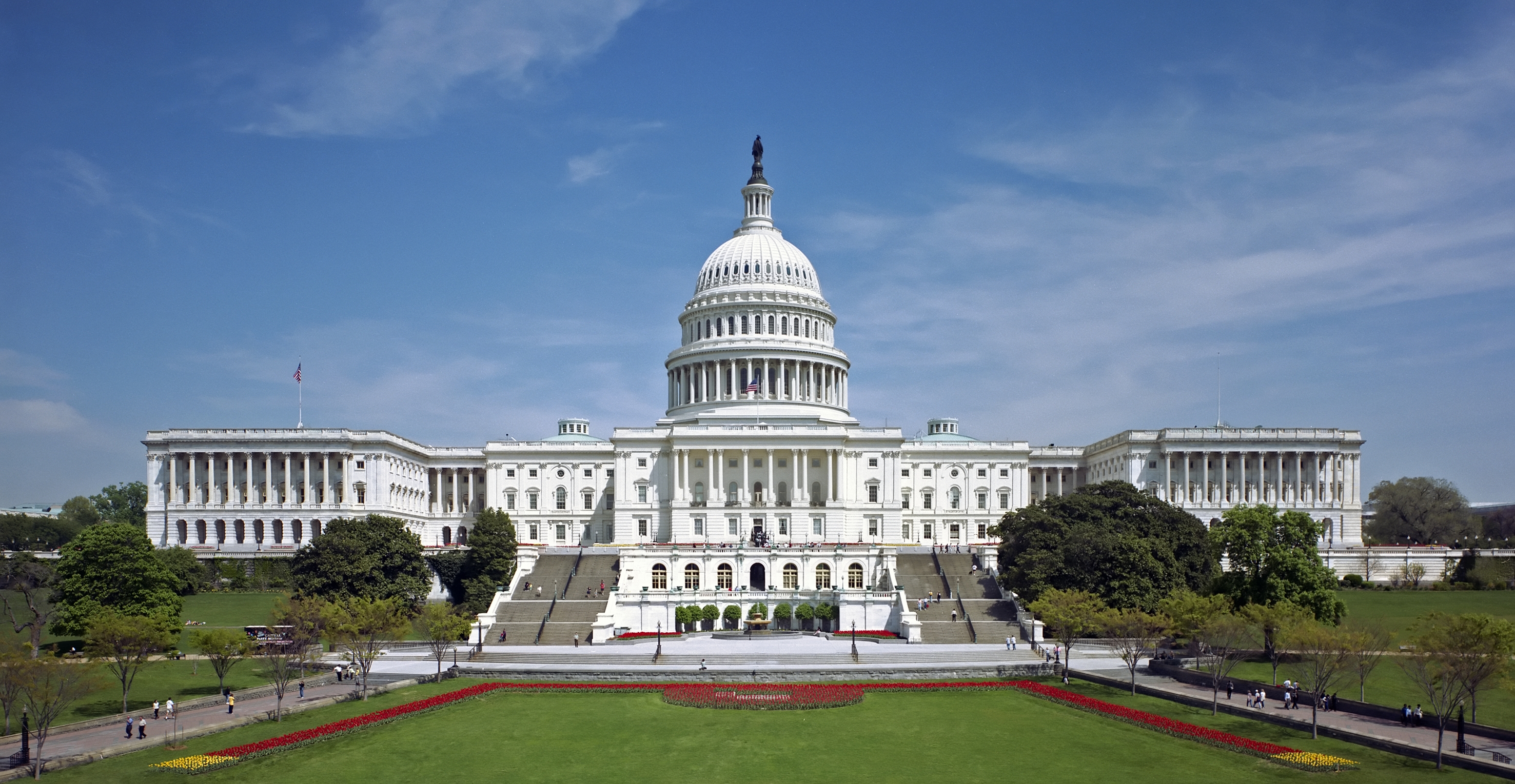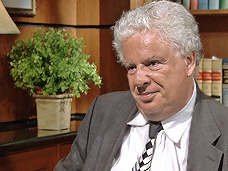
 In
the first fifteen years of the 21st century, the United States has
initiated a series of well-intentioned and even noble military interventions
abroad that have resulted in catastrophe, killing and maiming tens of thousands
of innocent civilians and creating chaos where once there were viable if
authoritarian states. Iraq, Afghanistan and Libya come immediately to mind.
In
the first fifteen years of the 21st century, the United States has
initiated a series of well-intentioned and even noble military interventions
abroad that have resulted in catastrophe, killing and maiming tens of thousands
of innocent civilians and creating chaos where once there were viable if
authoritarian states. Iraq, Afghanistan and Libya come immediately to mind.Now we are poised to repeat this experience in Ukraine, where Congress has urged the President in its latest resolution (HR 162) of March 24 to send in lethal weapons, trainers and more, for the sake of countering what is alleged to be Russian aggression. Germany and other leading allies in Europe have objected strenuously to arming the Ukrainians now, saying that the effect will be merely to pour gasoline on the flames of civil war, leading to vast escalation of violence and the possibility of a hot war between Russia and the West.
Sad as the lop-sided 348 yeas vs 48 nays vote in the House was, it marked a significant improvement on the last similar Russia-bashing vote on Capitol Hill on December 4th, when there were just 10 voices against the motion.
Within the 48 votes representing reason and common sense in the face of group think, 38 were Democrats and 10 were Republicans. That marks a spurt from the nearly balanced ratio back in December. I am told that the difference was some very effective lobbying of the black caucus by Progressive Left activists.
Meanwhile at the World Russia Forum session in the Hart Senate Office Building on March 26, the one Congressman who agreed to deliver the keynote speech was, as it turned out, a Republican, Dana Rohrabacher from California. And at the sidelines of the Forum, he and several others opined that Republicans also are open to facts and capable of changing their minds. In particular he puts his trust in the greater concerns of Americans over ISIS than over Russia, as revealed by recent polls. That, and the proposition that the best way to tackle ISIS is in a joint campaign with Russia.
That is a weighty argument why U.S. national security would be better served by finding a compromise on Ukraine with the Kremlin and moving back to the status quo ante, to a cooperative stance.
One further argument from the national security file is the damage that America’s contemplation of military intervention in Ukraine is having on the Atlantic alliance. The call for creation of a European Army by EU Commission President Juncker a couple of weeks ago was a direct affront to the concept of NATO and could have been issued only with the backing of his patron Angela Merkel. Europeans are looking for a way out from under American leadership only because that leadership is headed in precisely the wrong direction.
The question for our panel: is there reason to hope that Congress can be brought to its senses on the Russia question by lobbying from the healthy forces within the country, or will salvation come, if at all, from developments outside the States, meaning from decisions made in Europe.
 The topic for the Discussion Panel is provided by Gilbert Doctorow,
The topic for the Discussion Panel is provided by Gilbert Doctorow,
Gilbert Doctorow is the European Coordinator of the American Committee for East West Accord, Ltd.
Expert Panel Contributions
By Patrick Armstrong
Patrick Armstrong is a former political counselor at Canadian Embassy in Moscow
To answer the question, we must first ask whether the US Congress steers, or is steered. Judging from a recent study that concluded: "U.S. policies are formed more by special interest groups than by politicians properly representing the will of the general people, including the lower-income class,” it would seem that it is steered. Thus there is little point in seeking to use the normal "democratic” means of influencing its collective opinion.
Second, it is precisely that notion of "well-intentioned and even noble military interventions” which is at the root of the repeated disasters of US military interventions since 1945. The neocon notion of "American exceptionalism”, now married to its leftist cousin of "humanitarian interventions”, are driving the US Congress in its reactions to the Ukrainian disaster. It couldn't possibly occur to the self-righteous that Ukraine's nightmare is the consequence of the earlier "well-intentioned” intervention, any more than ISIS could be a consequence of the Libyan intervention. It must be someone else's fault. And the self-righteous stand strong in their self-righteousness lest they be seen as weak. As Richard Sakwa has elegantly put it, speaking of NATO: "NATO’s existence became justified by the need to manage the security threats provoked by its enlargement." Every "well-intentioned" action sets up the condition for the next.
Third, good intentions are nothing when united with ignorance. And the depth of ignorance in the Washington establishment about Russia or Ukraine is unfathomable.
So, the only hope is that somebody somewhere can persuade the US Congress that this "well-intentioned” intervention is on a path that leads to war. A war that the USA will lose. A war it will lose to the loud applause of most of the rest of the world – a world that already sees it as the greatest threat to peace.
But what of it? The USA and its Congress should be used to losing wars by now.
Congress, Ukrainian Crisis, and the Dangers of Turning an Apocalyptic Film into Reality.
By Vladimir Golstein,
Vladimir Golstein is the Associate Professor of Slavic Languages and Literatures, Department of Slavic Studies at Brown University. He was born in Moscow and emigrated to the United States in 1979
I am afraid that the majority of the US politicians do not know very much about the Ukrainian crisis, nor do they want to know or even are expected to know. Their immediate responsibility is to their constituency, which has much more mundane concerns.
What the average politician seem to know is this: 1. There is a big bad Russia out there, and since most of the politicians grew up with the memories of big bad Russia, they are not surprised to hear about Russia’s new threats. 2. The majority of US politicians have plenty of vocal former East Europeans and Ukrainians among their constituents, and these people bombard their offices with demands to "get tough with Russia,” while citing various personal grievances against the former evil empire. So for every letter that a former Russian could write to their representative about the dangerous escalation of the events, this representative gets ten letters demanding a tougher stance. So their natural instinct is to leave the issue alone. Furthermore, every politician knows that there is nothing wrong with opening a new military enterprise in their district, so even those who do know better prefer not to rock the boat.
So far, there has been very little pressure coming from the academic establishment in US. Observing the amount of abuse thrown at Professor Stephen Cohen, this establishment prefers to sit on the fence on this issue. Significantly, that applies even to the majority of Ukrainian and Polish specialists who know very well the complexities of Ukrainian situation and the actual dangers to the world peace that can result when Russia is pushed around too much. Yet, out of fear of vicious attacks from their own nationalistic communities, they prefer to stay on the side, allowing the few committed war-mongers, like professors Alexander Motyl and Timothy Snyder, to play arm-chair NATO generals.
The initiative on reconsidering the priorities of foreign policy would not thus come from Congress or from its enlightened or uninformed constituents, but rather from the outside sources: namely, from the President, from the State Department, or from the NATO allies and other foreign countries.
The President so far has been acting with caution and understanding. Despite his tough rhetoric, he seems to resist the simplistic calls for "getting tough with Russia.” Yet, he is also rather hesitant to change the direction of foreign policy, preferring to "sleepwalk” into crisis instead.
I don’t have any hopes for the State Department, until people who dragged us into this situation, namely, Victoria Nuland, along with Secretary Kerry --who seems to be under Nuland’s complete spell-- remain in power. Consequently, my only hope is on the pressures that would come from abroad, be it from Europe, China, Middle East and so on. I believe that these pressures would eventually establish the obvious, that despite the immediate benefits of arms race, the benefits of cooperation with Russia far outweigh the dangers of confrontational policy. Let’s presume first that some Pyrrhic victory over Russia is achieved and Putin has buckled up and the external pressure. European politicians know very well, that weakened Russia would drag Europe down economically while flooding it with refugees and arms. Furthermore, the plight of weakened Russia would alarm all the BRIC countries, which would take precaution not to replay Russian situation. Thus, instead of Russia as an ally, we would face the rest of the world ready to band together in the effort to resist the bullying.
But what if Russia refuses to buckle up and decides to confront the challenge with their military force. I hope that somebody sane, whether in Europe or the United States (be it in CIA or Pentagon) would convince at least some of the Congressmen, that pushing Russia too far can result in the situation under which there won’t be any constituents left to represent in the Congress. There will be empty California and empty New York. Arizona might be left to its own devices, so the stance of Senator McCain is quite understandable after all.
Europeans, Germans in particular, remember the destroyed cities well. Americans never experienced the bombing of their own cities, and thus have serious difficulty to imaging the finality of such destruction. When they see destruction in cinemas, it only lasts for two hours. In real life, the destruction can be permanent. Does this generation of politicians really have such a degree of Hollywood envy that they are willing to create their own apocalypse that would leave anything dreamed of in Hollywood in the dust? Come to think of that, maybe a good film can deliver where rational arguments so far have failed? Mr. Oliver Stone, are you up for a challenge?
 What will induce Congress to reverse its stand on the Ukraine crisis?
What will induce Congress to reverse its stand on the Ukraine crisis?
By Andrej Kreutz
Adjunct Professor, University of Calgary
Affiliated Expert, European Geopolitical Forum
During the last year on December 4, 2014 and on March 24, 2015, the US Congress adopted two very hostile to Russia resolutions and the first of them H.Res. 758 was called by the well known former Republican Congressmen Paul Ron a declaration of war on Russia and "one of the worst pieces of legislation ever.”[1] The second resolution, which was adopted on March 24, shortly after the conclusion of the Minsk-2 Agreement, calls to arm Ukraine and according to Ron Paul Institute made clear that, "Congress wants a war in Ukraine and will not settle for a ceasefire.”[2]
As both resolutions are constitutionally not binding and the Presidential administration does not need to implement them, therefore, they do not represent a direct threat. However, they are still important and significant political statements and as I believe the most worrisome in that is the fact that the Congress in its resolutions in fact followed the general mood prevailing in the country, which is shared not only by the ruling elites and special interest groups, but also by the majority of Americans. According to the recent Gallup public opinion poll most of them perceive the Russian Federation as the major national threat, worse than the North Korea, China, or Iran. In view of this any, otherwise possible and in the American history sometimes effective, pro-peace mass movement might be quite difficult or perhaps impossible to set in motion. The public opinion of the masses is now largely formatted by the PR efforts and because of a number of causes including the decline of the traditional well educated and politically involved middle class, the perfections of the means of social and political influence, including a stricter control of the schools and universities curriculum, made a chance of creation of the social movement on the 1950’s and 1960’s patterns highly unlikely.
At the same time, I do not want to say that the public opinion became unimportant. Andrew Korybko rightly indicate that the deep government is for more important for the American foreign policy making process than the elected officials and in fact similar situation also prevailed in many other traditionally liberal-democratic nations. However, even the authoritarian governments have to take into account, the social mood in their countries and some social groups are far more influential than the others. The Russian Federation does not threaten now any important US interests and cooperation with Moscow as a more or less equal, or at least tolerated, partner might be for Washington quite advantageous in Asia, the Middle East, and as I believe even in Europe. If the mass scale social mobilization would be impossible, the supporting such view business people, intellectuals and other experts might be much more likely to be heard and make an impact.
The deep government and media and anti-Russian campaign is to a large extent caused by the boosted by ABM development belief in the American winnability of the nuclear war with Russia. Some influential people put their trust in the US’ missile defense system, which European extension is getting to be deployed now almost on the Russian borders. Some others think that by its first pre-emptive strike the US can hit Russia so hard, that Russia would not be either able or even willing to retaliate in fear of a second blow and total destruction. Numerous collateral damages and impact of such a horrible operation on the old continent does not seem to be taken into account. The possible and perhaps inevitable impact of that on North America has also hardly ever been mentioned. I believe that the open discussions of all these and related challenges would be now the most effective form of a pro-peace activity and that the experts in the fields of nuclear physics and atomic energy can play a leading and the most needed social role.
1 Ron Paul, "Reckless Congress Declares War on Russia,” Ron Paul Institute for Peace and Prosperity, December 4, 2014.
2 Daniel McAdams, "Congress Demands War in Ukraine,” Ron Paul Institute for Peace and Prosperity, March 23, 2015.
 Expert Panel: What will induce Congress to reverse its stand on the Ukraine crisis?
Expert Panel: What will induce Congress to reverse its stand on the Ukraine crisis?
By Martin Sieff
Martin Sieff is a Senior Fellow of the American University in Moscow and former Managing Editor, International Affairs at United Press International. He is the author of Cycles of Change: The Three Great Cycles of American History and the Coming Crises That Will Lead to the Fourth (2015) available from www.martinsieff.com
"One can always count on the American people to do the right thing, after they have exhausted all other possibilities,” this quote is popularly attributed to Winston Churchill, although there is no record he ever said it. However, there is no sign that Congress and the American people have come close to exhausting their current plunge into suicidal recklessness in the Ukraine crisis.
On the contrary, the new 114th Congress is already in overdrive in its efforts (presumably unintentional) to drive the United States into thermonuclear war with Russia. On March 24, the House of Representatives approved a new resolution (HR 162) to send lethal weapons, military trainers and other support to President Pyotr Poroshenko’s beleaguered government in Kiev, allegedly to counter Russian aggression.
This resolution could not have been more ineptly timed. It follows the signing of the Minsk 2 Accords, the best hope in a year of ending the ongoing civil war in Ukraine that has killed 6,000 people in its first year. It comes right after even President Poroshenko, who has been notorious for unleashing heavy artillery and bombing attacks on cities, signed an agreement to continue receiving cheap natural gas from Moscow. Poroshenko was fiercely attacked for this moderate move by armchair critics and free market theorists in the U.S. media).
The congressional resolution is also a gratuitous insult to German Chancellor Angela Merkel and French President Francois Hollande, America’s two greatest allies in Europe. Both of them labored long and hard over the Minsk Accords. And both of them outspokenly oppose sending arms to the Kiev government and the chaotic militias – some of them displaying open Nazi regalia – fighting the secessionists in Donetsk and Lugansk.
The House resolution will send a clear signal to Poroshenko and his hardliners that Washington wants more violence and provocation against Russia and the eastern Ukraine secessionists. Sending arms to Ukraine now will gasoline on the flames of civil war. It will rapidly lead to a vast escalation of violence and the possibility of a hot war between Russia and the West.
The extraordinary ignorance and irresponsibility in the House is bipartisan. Some 348 members voted for the resolution, and only 48 had the knowledge and the simple guts to vote against it.
Even this was a marked improvement on the previous non-binding resolution passed in the House on December 4, when only 10 members opposed it. Members of the Congressional Black Caucus especially deserve praise from providing the bulk of the ‘no’ votes on the Democratic side on March 24.
However, left to itself, this Congress is never going to learn wisdom. It will only change and respond to what it always changes and responds to – the lure of money (financial support for reelection campaigns) or the threat of withholding it, and a truly giant wave of popular fury from the American people. So far there is no indication whatsoever of that happening.
I see no prospect whatsoever this situation changing before it is too late. Anti-Russian prejudices are firmly entrenched across the old imperial Republican Right and most of the liberal, human rights-loving liberal left. Fantasies of some revival of 1950s-60s grass-root "peace activists” joining hands and singing "Kumbaya” across America are just absurd. I have more faith in Frodo Baggins and his hobbits. Nor is there any sign of responsible U.S. business community leaders organizing to fund or otherwise encourage any efforts to educate the U.S. media and public on the true dangers they face.
That means the last, best hope to avoid thermonuclear conflagration currently rests on the decent, well-meaning shoulders of Chancellor Merkel, President Hollande and their allies in Europe. But even they need to speak out far more boldly and tell Truth to the Powers in Washington.
Otherwise, the best advice I can give is: Learn Spanish and go to live in Argentina or southern Chile.
By Patrick Smith
Henry Steele Commager, among the celebrated historians of his time, collected a half- dozen years’ essays and published them in 1974 as The Defeat of America. In it he argued for all that was to be gained were the U.S. to lose in Vietnam and an "aberrant foreign policy” elaborated during the Cold War decades were to be turned back. Commager understood: Defeat is the mulch of renewal. He saw in it "a cathartic value.”
I hold to this thesis now, as Congress, ever as aggressively as political and diplomatic circumstances permit, presses toward a yet more aggressive American role in Ukraine. Those who oppose this posture, and those who recognize that its true ambition is to destabilize the Russian Federation, must hope for failure. They must argue for defeat, as Commager did, and in the prevailing American climate remain steadfast enough also to argue for the optimism lying within the apparent pessimism.
In late March, an item called House Resolution 162 made its way to the floor of Congress. Backed by the more extreme factions of the Republican majority, it calls for the arming of Ukraine and "a long-term strategy” to undermine the Putin government in Moscow. This language was drafted a matter of weeks after the Minsk II talks established a fragile, imperfect, but so far sustained ceasefire between Kiev and Ukraine’s eastern regions.
It is true that the House majority advances this kind of reckless sentiment commonly. Forlornly enough, it has tried to overturn President Obama’s health-care law 30-odd times. But efficacy is not the point. H. Res. 162 is a measure of how much hope one can put into the prospect of a fundamental shift in Congress’s prevailing views of the Ukraine crisis and Russia. By the evidence, which is plentiful, one can sustain none.
The best outcome, then, is an American defeat. In my view, this is the most important task to be accomplished if a good settlement is to be achieved This is the primary contradiction, as the Marxists would say. All else, and there is much, is secondary at this time. The question is what form a necessary American failure will take.
At the start of this year I argued elsewhere that one of two relationships was fated to suffer a severe setback in the course of coming months: Either U.S. ties with Europe or Europe’s ties with Russia would sustain a significant breach, as I saw it. I continue to argue that the former is the more desirable result. Interdependence between Russia and Europe is a positive value; so is a wider Atlantic.
As Europeans understand far better than Americans, the Continent has been restive with America’s primacy in the Atlantic world since the early Cold War decades. To realize now a distance many Europeans have long desired holds at least the prospect of a more independent Europe performing as a counterweight to American influence within the Western alliance.
The European stance on Ukraine, though often ambiguous, is a ready example of the thought. European influence in the P5 + 1 group, which just concluded a preliminary accord with Iran on the latter’s nuclear program, appears (from what we know) to be another.
The reality most Americans find too bitter to face—and here we must set much aside—is that the Russian position in Ukraine is vitally important once one accepts that the causes of the crisis originate in Washington’s post-Soviet ambition generally and its intentions more specifically in facilitating last year’s coup in Kiev. Washington must be stopped: This is the reality. Moscow did not apply for the job, but it has it, at least in its on-the-ground aspect.
We live in a large moment and we must think accordingly. What is it Congress actually has on its mind? What is its most fundamental intent? These questions cannot be answered with resort to logic. Reasoned argument for a new posture toward Ukraine and Russia will not yield any such thing.
Fundamentally at issue is the self-evident exhaustion of what we commonly call the exceptionalist narrative. A consciousness is passing, to put the point another way. What we witness in Ukraine, and refracted variously throughout American foreign policy, is a certain desperation among those who—determinedly, insistently—still find safety in the exceptionalist story.
This defines the task, it seems to me, as less tractable than it might be otherwise. Chosen-people consciousness was not a rational matter among the 17th century settlers who made the first crossings. It was a question of belief, not thought. So it remains, for better or worse, and, in the nature of faith and belief, we had better brace for worse.
ENDIT REGARDS LAWRENCE NORFOLK.
 Forget Congress! The Deep State Is America’s Real Bad Guy In Ukraine
Forget Congress! The Deep State Is America’s Real Bad Guy In Ukraine
By Andrew Korybko,
Andrew Korybko is the American Master’s Degree student at the Moscow State University of International Relations (MGIMO)
In his introduction to the US-Russia Expert Panel prompt about whether Congress can be lobbied away from arming Ukraine, Mr. Doctorow mentions previous American interventions abroad that were "well-intentioned and even noble” but ultimately "resulted in catastrophe”, such as "Iraq, Afghanistan and Libya”. The strong issue taken with this statement is that the US’ interventions there and everywhere else were and always will be anything but well-intentioned and noble, being driven by pure geopolitical power plays in each and every instance.
It’s exactly this "well-intentioned and even noble” mindset that has convinced the vast majority of Congress of the righteousness of arming Ukraine, and no amount of lobbying will get them to see beyond this perspective unless they themselves really want to. Suggesting that "developments outside the States, meaning from decisions made in Europe” could have a positive effect on convincing Congress to pull back from its current course completely ignores the reality of American Exceptionalism and the fact that Congress may actually feel emboldened to arm Ukraine simply because the EU is seen as being ‘weak’ and ‘dilly dallying’ over this artificially pressing topic.
It’s important at this point to question the logic of even lobbying Congress against arming Ukraine in the first place, since President Putin has previously said that Kiev is already getting arms from Western countries anyhow. This shows that Congress’ function isn’t to call the shots in American foreign policy, but to function as ‘democratic’ window dressing for established deep state policies. To expand upon this further, the deep state is defined by the author as representing the permanent diplomatic, defense, and intelligence bureaucracy that doesn’t cycle out of power whenever presidential administrations change. They represent a continuous and consistent force in shaping the application of America’s foreign policy, hence why despite the regular shuffling of the state’s upper echelon (e.g. Secretary of State, Director of the CIA, the President), the country’s policies proceed unabated amidst these symbolic periodic transitions.
This is exceptionally true for American foreign policy against Russia, and one needs look no further than the new US National Security Strategy of 2015 to recognize both the power of the deep state and the futility of lobbying Congress against its dictates. The document explicitly makes it clear that Russia is now seen as a threat to American national security and that the US "will continue to impose significant costs on Russia through sanctions and other means”. Specific attention should be drawn to the last part, "and other means”, which is an obvious allusion to hostile covert operations such as arming Ukraine. The die has already been cast when it comes to sanctions (see the certainty with which the document speaks about the continued imposition of sanctions without any reference to Congress whatsoever), so it should be no different when it comes to weapons shipments either.
Finally, in the absolutely unlikely event that Congress passes legislation expressly prohibiting the arming of Ukraine, then the deep state, with the rubber stamping of the President, can resort to more surreptitious methods to carry out its preplanned shipments, with the Iran-Contra scandal immediately coming to mind. It doesn’t matter what exact form this takes, but what’s important is to acknowledge that ‘where there’s the will, there’s the way’, and the US deep state certainly has the will to continue pushing Russia’s buttons and prodding it into a costly conventional intervention in Ukraine on terms which are controlled by Washington. The solution, therefore, lies not in fruitlessly lobbying Congress and impossibly reversing a fait accompli, but in accepting the reality of the deep state’s overriding influence on foreign affairs and redirecting one’s efforts towards more constructive endeavors, such as raising awareness among the population about this state of affairs and supporting independent media and political oversight initiatives that seek to shed light on it.




_jpg/250px-ElbeDay1945_(NARA_ww2-121).jpg)





